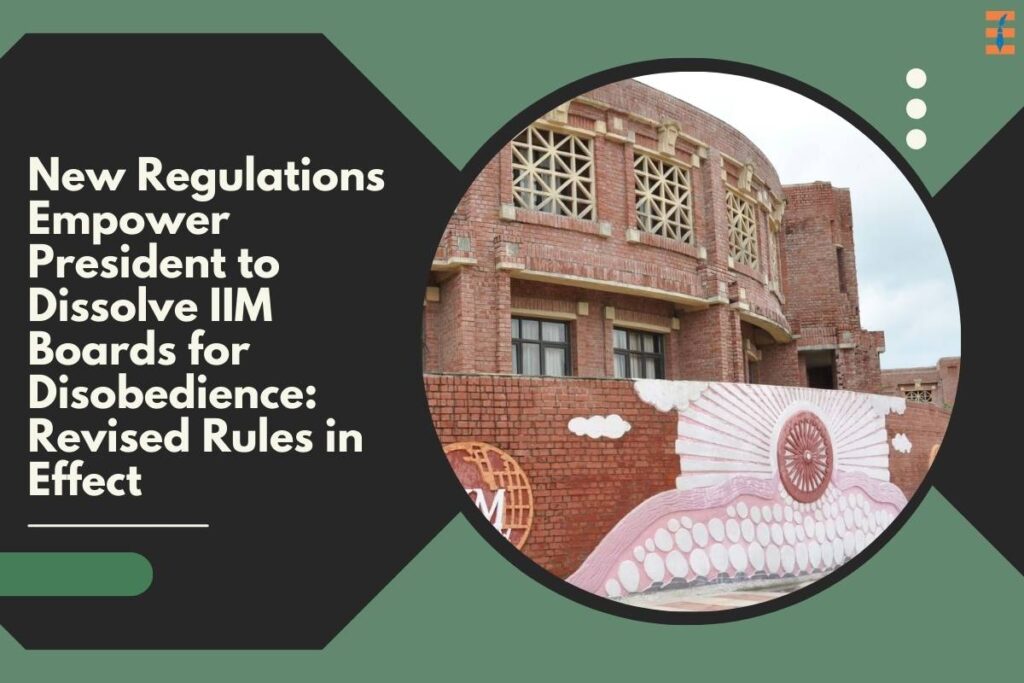In a significant development, the Ministry of Education (MoE) has officially rolled out revised rules, three months after amending the Indian Institute of Management (IIM) Act to reinforce central authority over the country’s 20 premier business schools. The revised rules provide a framework for dissolving an institute’s governing board, signaling a shift in the dynamics of governance within these prestigious institutions.
The Authority to Dissolve an IIM Board
As disclosed by The Indian Express on November 11, the Union government, represented by the President, who holds the position of Visitor for all IIMs, now possesses the authority to dissolve an Indian Institute of Management (IIM) board under three specified grounds. These grounds include persistent disobedience of the board’s orders, actions taken in the interest of the public, and circumstances beyond the control of the board that hinder its effective functioning.
The amended rules, now in force, also elucidate the scope of the President’s powers concerning the removal of an IIM director. The rules explicitly state that the institute’s board is mandated to adhere to the decisions of the Visitor in this regard, eliminating any room for ambiguity or debate.
Distinguished Academic with a PhD — Criteria for Director’s Position
In a notable departure from previous practices, the revised rules under the Indian Institute of Management (IIM) Act establish clear educational qualifications for individuals aspiring to be IIM directors. The stipulation outlines that candidates for the director’s position must hold a first-class degree at both the Bachelor’s and Master’s levels, in addition to a PhD or an equivalent qualification. This specification is a departure from the earlier criteria, which merely required a “distinguished academic with a PhD or equivalent,” with no mention of the specific division for the degrees.
This particular amendment gains significance in light of the IIM Rohtak case, where it was revealed that the incumbent director, Dheeraj Sharma, held a second-class Bachelor’s degree, while the government’s advertisement for the post mandated a first-class Bachelor’s degree. The Ministry of Education informed the Punjab and Haryana High Court last year that Sharma had misrepresented his educational qualifications, underscoring the need for clearer and more stringent criteria.
A Proactive Approach to Ensure Transparency
The impetus for these rule amendments stems from recent changes to the Indian Institute of Management (IIM) Act, introduced during this year’s Monsoon Session of Parliament. The revisions signify a proactive approach by the government to ensure more transparent and accountable governance within the IIMs, with a focus on maintaining the integrity of educational qualifications and enforcing discipline within the institutions.
As these revised rules come into effect, the IIMs and their respective boards will need to align with the new parameters set by the Ministry of Education, emphasizing compliance with the President’s directives and adhering to the enhanced standards for the appointment of directors. This marks a pivotal moment in the evolution of governance structures within IIMs, reflecting the government’s commitment to upholding the highest standards of academic leadership and institutional management.










